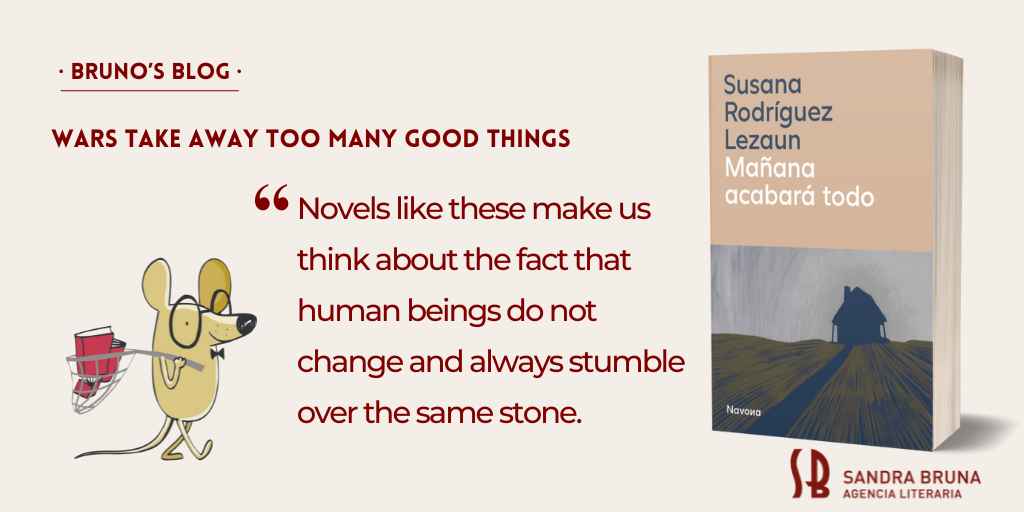Susana Rodríguez Lezaun has not abandoned the thriller genre, so her loyal readers can rest assured.
But many authors, many more than you would think, have in the drawer novels that they have written in a moment of inspiration, because their minds were asking them to write it, and they run into their editors and agents who tell them that sentence they don’t want to hear: “Now is not the time for this novel”.
There can be many different reasons why we say this, but the main one is usually that the novel doesn’t fit the genre the author is currently publishing in, and we would risk confusing their readers.
It’s not an eccentricity of the publishing world but a reality in most cases. And although it is difficult to explain to the author and have them truly listen, Susana, an obedient author if ever there was one, took our advice. However, she always felt the itch for this more literary novel, kept safely in that magical drawer.
In it, she speaks of a war and the deepest, most painful emotions of the human condition. So, after several novels, we decided to bet on Tomorrow will be over (original title: Mañana acabará todo)—which originally had a different title—with a publishing house where it made sense to place it.
Navona Editorial bet on this more literary side of an author who already had a name in the market. Getting to this point wasn’t easy, and now we have to convince the readers, but a novel like this one couldn’t stay in the drawer any longer.
Because it speaks of war, specifically the Yugoslav War, which it seems that no one remembers anymore because, unfortunately, other wars have come and we are living through them. (Sometimes, I can’t understand how the world keeps turning with these conflicts so close to us, and how we are incapable of doing anything to prevent or end them).
In this novel, amidst the plains, between narrow paths and wild fields, there is a brothel. Fiodor trained in the finest restaurants in France, but now he works as a cook in this house, obediently following everything Rita, the madame, tells him to do. What he cannot imagine is that the war will take away that corner of the world from them—the only home either of them has ever known. After seven long and devastating years, Fiodor will return to that house to rebuild both its foundations and his own soul. He will have to learn to coexist with Dunja and Daniela, watch Zoran grow, and, little by little, find his way back to cooking.
With a sharp and ironic style, Susana Rodríguez Lezaun portrays, through her characters, the agony of struggling for an uncertain and unattainable tomorrow. It’s a story about how war freezes the lives of those who endure it, but also about resilience and the fight to rebuild from the ashes in pursuit of a better future.
A novel written years ago, but unfortunately, it is painfully relevant today due to a war that is always the same: the pain and death of innocent people in a place they believed to be safe. And, from one day to the next, without knowing why, they lose everything. Others, like Fiodor, accept and survive to rebuild what a war took from them.
We wouldn’t have published this novel if it didn’t make sense to do so. Now, more than ever, it does, because novels like these make us think about the fact that human beings do not change and always stumble over the same stone.
No matter how much we believe a conflict has a reason to exist, wars themselves strip away all reason and take with them far too many good things.
No matter how much we believe that a conflict has a reason to occur, wars in themselves make all reasons meaningless and take away too many good things.

